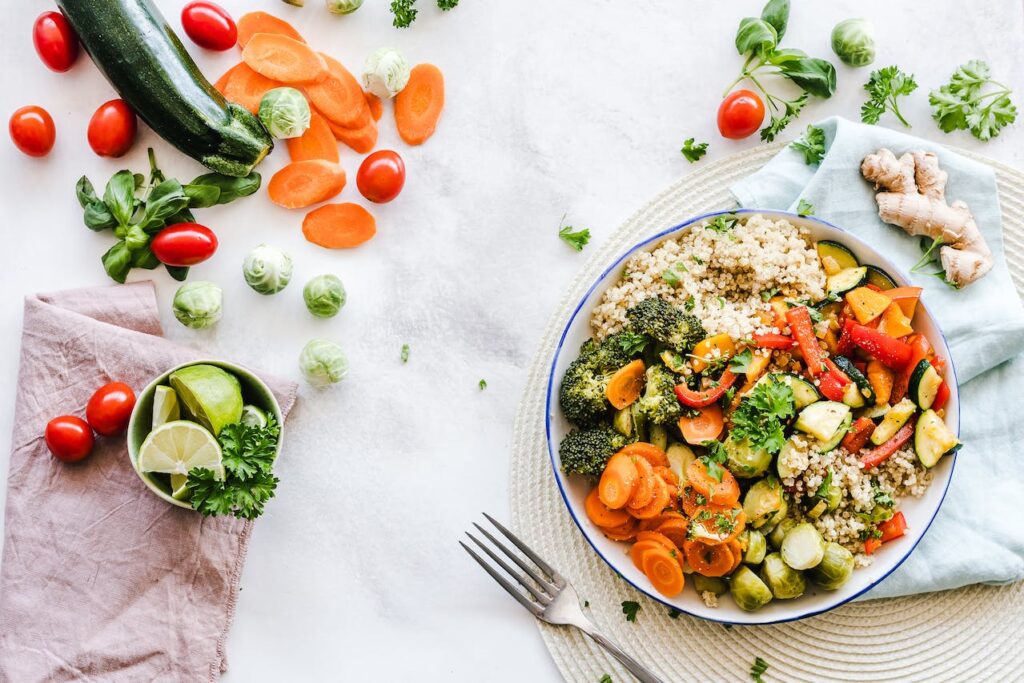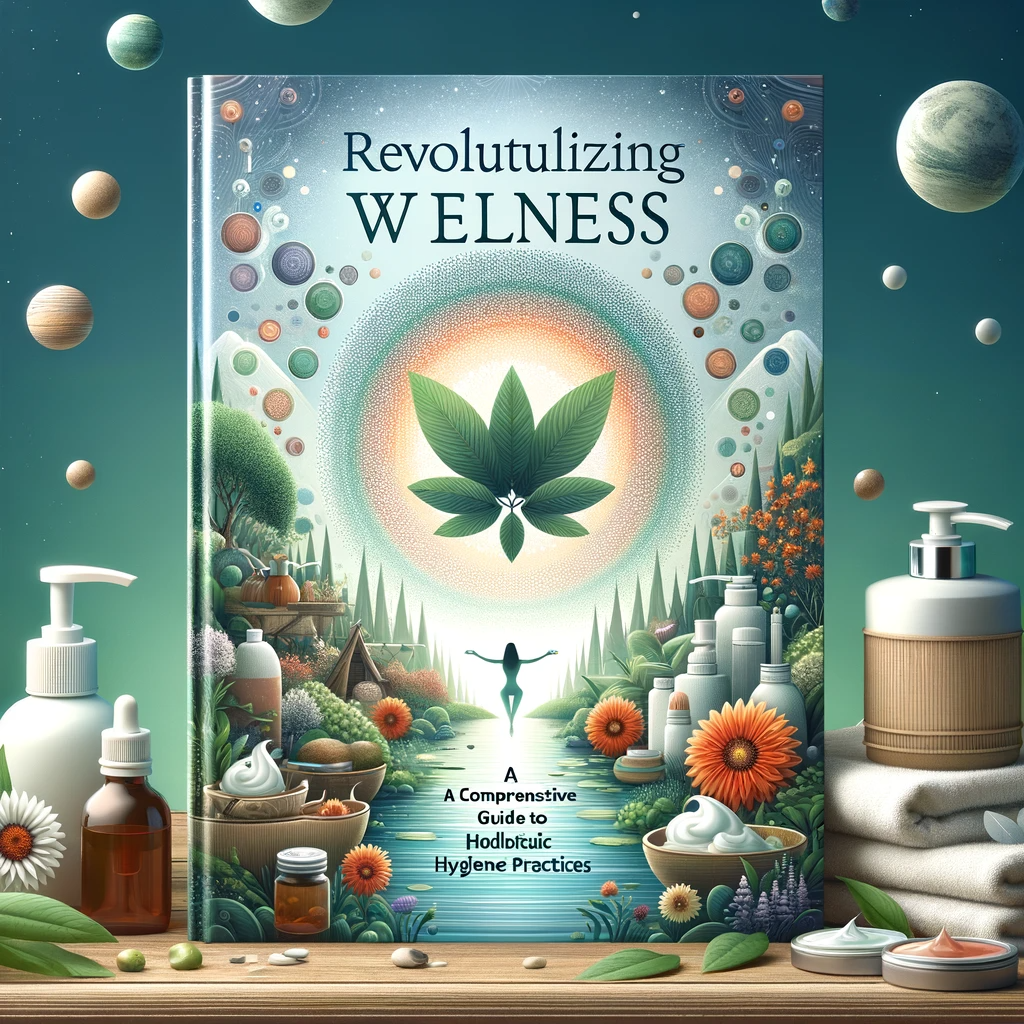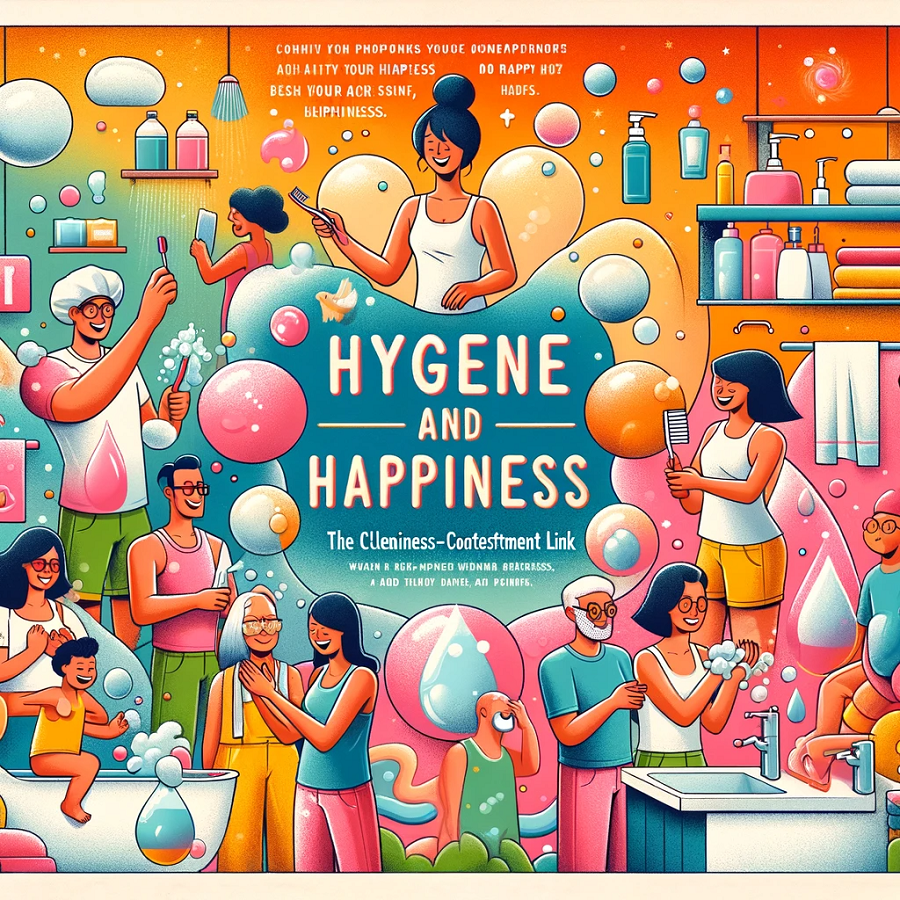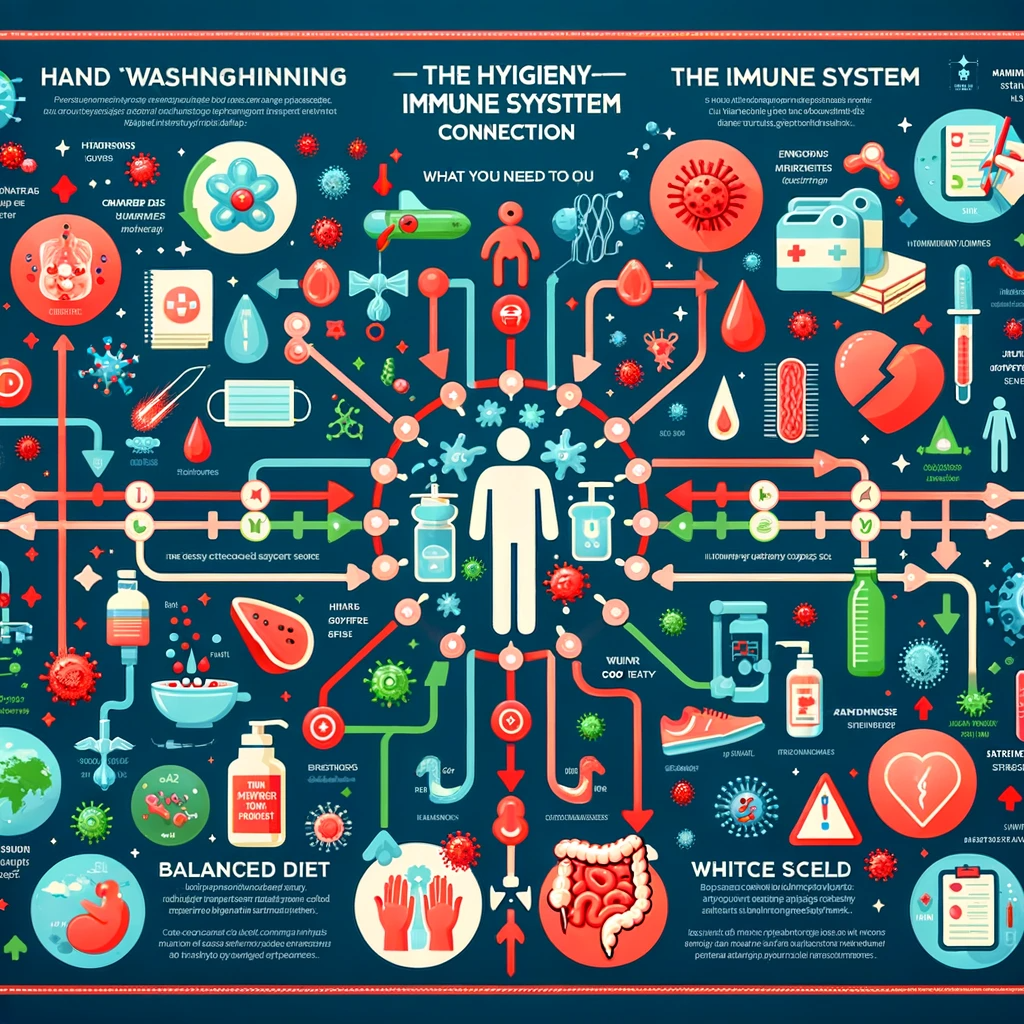In our pursuit of a healthy and fulfilling life, two fundamental elements often take center stage: nutrition and hygiene. While we readily associate hygiene with practices such as regular handwashing, dental care, and maintaining a clean environment, it is essential to recognize that the foods we consume also play a pivotal role in ensuring our personal cleanliness and overall well-being. This comprehensive article explores the intricate relationship between nutrition and hygiene, shedding light on the often-overlooked connections between what we eat and how we maintain our cleanliness. From the impact of diet on personal hygiene to the critical role of gut health in bolstering our immunity, we will unravel the intricate web that binds these two aspects of our daily lives together. Along the way, we’ll provide practical insights into maintaining a balanced diet, incorporating nutrient-rich foods into your daily meals, and avoiding common pitfalls. Join us on this journey as we discover how hygiene and nutrition form a two-way street, guiding us toward a cleaner, healthier, and more vibrant life.
| Category | Tips |
|---|---|
| Nutrition for Healthy Skin and Hair | – Consume fruits and vegetables rich in antioxidants for glowing skin.<br>- Include sources of essential fatty acids like fish, nuts, and seeds for moisturized skin and lustrous hair.<br>- Ensure an adequate intake of protein for strong and healthy hair. |
| Oral Hygiene | – Minimize sugary snacks and drinks to prevent tooth decay.<br>- Incorporate calcium and phosphorus-rich foods like dairy products for strong teeth.<br>- Drink plenty of water to maintain saliva production and natural mouth cleaning.<br> |
| Gut Health and Immunity | – Eat fiber-rich foods like whole grains, legumes, and vegetables to support a healthy gut microbiome.<br>- Include probiotics found in yogurt and fermented foods for improved gut health.<br>- Prioritize a well-balanced diet to bolster your immune system. |
| Maintaining a Balanced Diet | – Plan meals with a variety of food groups, including fruits, vegetables, lean proteins, whole grains, and healthy fats.<br>- Limit consumption of processed foods, sugary snacks, and fast food to maintain both hygiene and overall health.<br> |
| Incorporating Nutrient-Rich Foods | – Experiment with different recipes and cooking methods to make nutritious foods enjoyable.<br>- Consider consulting a registered dietitian for personalized dietary recommendations.<br> |
| Common Mistakes to Avoid | – Avoid neglecting one aspect (nutrition or hygiene) at the expense of the other.<br>- Be cautious about relying solely on dietary supplements; prioritize whole foods whenever possible.<br> |
| Hygiene and Nutrition Balance | – Recognize that hygiene and nutrition are interconnected elements of daily life.<br>- Prioritize both aspects to achieve a harmonious balance for a cleaner, healthier you.<br> |
The Link Between Nutrition and Hygiene
In our quest for a healthier and cleaner lifestyle, we often focus on practices like regular handwashing, dental care, and maintaining a clean environment. However, what many of us fail to recognize is the significant role that our diet plays in ensuring our personal hygiene. In this article, we will delve into the fascinating connection between nutrition and hygiene, highlighting how the foods we consume can have a profound impact on our overall cleanliness and well-being.
The Impact of Diet on Personal Hygiene
While we may associate personal hygiene primarily with external practices, such as bathing and grooming, it’s essential to understand that what we put into our bodies can also influence our cleanliness. This section will explore the ways in which our dietary choices affect various aspects of personal hygiene, from the condition of our skin and hair to our oral health. We’ll uncover the surprising connections that exist between what we eat and how we maintain our personal hygiene.
Nutritional Requirements for Healthy Skin and Hair
Healthy skin and lustrous hair are often considered indicators of good personal hygiene. However, achieving and maintaining these attributes involves more than just surface-level care. Proper nutrition plays a crucial role in determining the health of our skin and hair. In this section, we will examine the specific nutritional requirements that contribute to vibrant, clear skin and strong, glossy hair. Learn about the vitamins, minerals, and dietary components that are essential for promoting healthy skin and hair.
Dietary Choices and Oral Hygiene
Oral hygiene is a vital aspect of personal cleanliness that extends beyond having a bright smile and fresh breath. Our diet plays a pivotal role in maintaining healthy teeth and gums, and the choices we make when it comes to food can significantly impact our oral hygiene. This section will explore the connection between dietary choices and oral health, discussing how foods and beverages can either support or undermine our efforts to keep our mouths clean and free from dental issues. Discover the foods that promote strong teeth and gums while learning about those that should be consumed in moderation to maintain optimal oral hygiene.
Gut Health and Immunity: A Nutritional Connection
A robust immune system is crucial for defending our bodies against various infections and illnesses. What might come as a surprise is that a significant portion of our immune system is closely linked to the health of our gut. In this section, we will explore the fascinating nutritional connection between gut health and immunity. We’ll discuss how the foods we consume impact the composition of our gut microbiome and how a well-balanced diet can bolster our immune defenses. Understanding this relationship can help you make informed dietary choices to support your overall cleanliness and well-being.
Maintaining a Balanced Diet for Overall Cleanliness
To achieve and maintain optimal cleanliness and well-being, it’s essential to adopt a holistic approach to your diet. In this section, we will delve into the concept of maintaining a balanced diet that promotes overall cleanliness. We’ll discuss the importance of incorporating a variety of food groups into your meals, including fruits, vegetables, lean proteins, whole grains, and healthy fats. By avoiding excessive consumption of processed foods, sugary snacks, and greasy fast food, you can positively impact both your hygiene and overall health. Discover how to strike a balance that ensures you look and feel your best.
How to Incorporate Nutrient-Rich Foods into Your Diet
Now that you understand the critical role of nutrition in promoting cleanliness and well-being, you may be wondering how to practically incorporate nutrient-rich foods into your daily diet. In this section, we will provide you with practical tips and strategies for making nutritious choices. Learn how to plan balanced meals that include a colorful array of fruits and vegetables, and explore different recipes and cooking methods that can make healthy eating enjoyable. For personalized dietary recommendations, consider consulting a registered dietitian to kickstart your journey towards a cleaner, healthier you.
Common Mistakes to Avoid in Nutrition and Hygiene
While striving for better nutrition and hygiene, it’s essential to be aware of common mistakes that can hinder your progress. In this section, we will highlight some of these pitfalls and provide insights on how to avoid them. One common error is neglecting one aspect, such as diet, in favor of the other, like hygiene. It’s crucial to strike a balance between the two for optimal health. Additionally, relying solely on dietary supplements as a quick fix can lead to imbalances and potential harm. We’ll offer guidance on prioritizing whole foods over supplements whenever possible, ensuring a more holistic approach to cleanliness and well-being.
Hygiene and Nutrition: A Two-Way Street
In the final section of our article, we’ll recap the central theme of this discussion: the two-way relationship between hygiene and nutrition. We’ll emphasize how these two aspects of our daily routines are interconnected and how they mutually influence one another. By prioritizing both nutrition and hygiene, you can achieve a harmonious balance that promotes cleanliness and well-being. This comprehensive approach ensures that you not only look your best but also feel your best, ultimately leading to a cleaner, healthier life. So, remember that cleanliness is not just skin-deep; it starts from within and extends to every aspect of your daily habits.
Final Thoughts:
the intricate relationship between nutrition and hygiene is a vital aspect of our daily lives that deserves our attention. We have explored how the foods we consume can significantly impact our personal cleanliness and overall well-being. From the condition of our skin and hair to the health of our gut and immune system, our diet plays a pivotal role. It’s clear that maintaining a balanced diet that incorporates nutrient-rich foods is essential for promoting cleanliness and vitality. We’ve also highlighted common mistakes to avoid, such as neglecting one aspect in favor of the other and overreliance on supplements.
Remember that hygiene and nutrition are not isolated concepts but a dynamic, two-way street. By prioritizing both, you can achieve a harmonious balance that ensures you both look and feel your best. So, embark on this journey towards a cleaner, healthier life by making informed dietary choices and maintaining proper hygiene routines. With the right approach, you can enjoy the benefits of improved cleanliness and overall well-being, setting you on a path to a brighter and more vibrant future.
FAQs:
Q1: What is the connection between nutrition and hygiene?
A1: Nutrition and hygiene are closely linked because the foods we eat can impact our personal cleanliness and overall well-being. A balanced diet rich in essential nutrients supports healthy skin, hair, and oral hygiene, while also strengthening our immune system.
Q2: How does diet affect skin and hair health?
A2: Diet can significantly influence the condition of our skin and hair. Nutrient deficiencies can lead to issues like dry skin, acne, and brittle hair. Consuming foods rich in vitamins, minerals, and essential fatty acids promotes healthy skin and hair.
Q3: What role does gut health play in immunity?
A3: Gut health is essential for a robust immune system. A healthy gut microbiome supports the body’s ability to fight infections and illnesses. Consuming fiber-rich foods and probiotics can contribute to a healthier gut and stronger immunity.
Q4: What constitutes a balanced diet for overall cleanliness?
A4: A balanced diet includes a variety of food groups such as fruits, vegetables, lean proteins, whole grains, and healthy fats. It minimizes processed foods, sugary snacks, and fast food consumption to promote both hygiene and overall health.
Q5: How can I incorporate nutrient-rich foods into my daily diet?
A5: You can incorporate nutrient-rich foods by planning balanced meals with colorful fruits and vegetables, experimenting with recipes, and exploring different cooking methods. Consulting a registered dietitian can provide personalized dietary recommendations.
Q6: What are common mistakes to avoid in nutrition and hygiene?
A6: Common mistakes include neglecting one aspect (nutrition or hygiene) in favor of the other, relying solely on dietary supplements, and consuming excessive sugary or processed foods. Striking a balance and prioritizing whole foods are key to avoiding these pitfalls.
Q7: Why is hygiene and nutrition considered a two-way street?
A7: Hygiene and nutrition are interrelated aspects of our daily routine. Proper hygiene practices support health, while a balanced diet contributes to cleanliness and well-being. Prioritizing both ensures a harmonious balance for a cleaner, healthier life.







